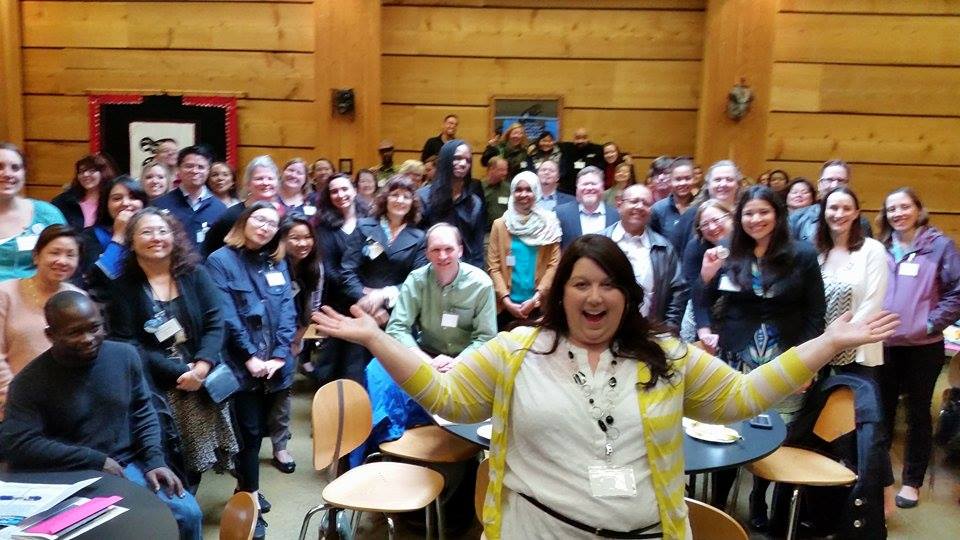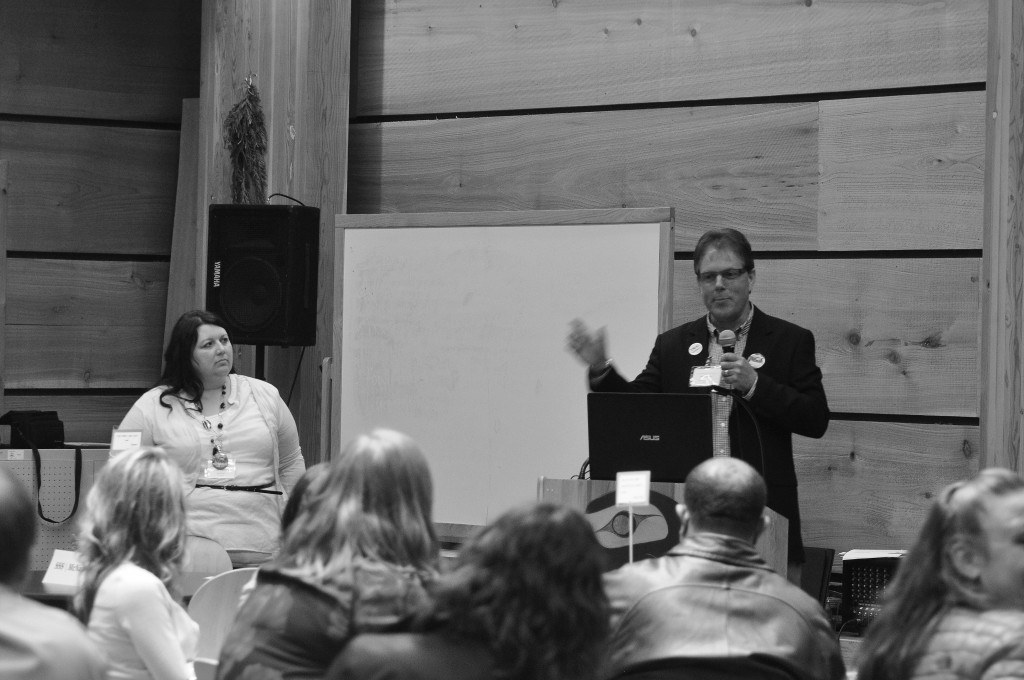

By Giovanni Roverso
Peninsula College hosted a Washington State TRIO Association (WSTA) conference on campus on April 10. Educators and faculty from schools and colleges across the state attended.
TRIO is a collection of eight programs that encourages student success across the U.S. and turns 50 this year. Tami Napiontek, PC Upward Bound Program Director presided over the conference as Washington State TRIO President.
Upward Bound, one of the original “Trio” of programs introduced with the 1965 Higher Education Act, is the first such program in Port Angeles.
The programs were originally pushed by U.S. President Lyndon-Johnson as a part of his war on poverty, said Tammy Napiontek.
She first got involved with PC’s Upward Bound program at its inception eight years ago as Academic Specialist but has since been promoted to Program Director. Recently she has also taken on the role of Washington State TRIO Association President, one more reason to hold the WSTA 2015 conference on campus.
“A lot of people confuse us with Running Start. A lot of people also think they can only do one or the other, but there are actually many students that do both,” Napiontek said.
“It’s for students that don’t have people to help and mentor them and help give them the accountability they need to get their work done. This allows them to get through high school and prepares them not only to get to college, but to persist and achieve a college degree.”
“But what I’d say is unique and special of all trio programs, especially here, is the relationships we make with students,” she said. “The goal is to turn the thinking around to encourage the whole family to partake in college and build successful careers and lives. Even parents might come for help after their kids have been helped.”
Napiontek said that even though the brand ends when students start college, students know that the Upward Bound staff is still there for them. “If someone comes knocking on my door I’m certainly not going to say I don’t have time, I’m going to set items aside and say how can I help you? It’s not about the time clock, we feel a responsibility,” she said.
Napiontek feels strongly about her work. She was like the kids her program helps today. She grew up in a low-income Port Angeles family and was the first person to get a college education. “If you do what you love you don’t work a day of your life, it’s prideful.”
Napiontek has a Master’s in Education, specializing in teaching, reading and writing in a diverse classroom. “Throughout middle school I wanted to be a language arts teacher, but I fell in love with this program. “I get to dream up all these fantastic ideas that a regular teacher couldn’t do and pull it off,” she said.
Napiontek said that the “meat and potatoes” of the program is a six-week period during the students’ bridge summer after high school.
Here students take their first for-credit college level classes, specially designed by PC Upward Bound staff. For two of those weeks, students spend time with staff on a variety of activities.
One residence week is usually with Nature Bridge, canoeing, hiking, camping, etc. “It’s great group bonding experience we have, smack dab in middle of summer. Truly, when you’re there it’s almost surreal. We really come together as a family,” Napiontek said.
Most of the second week consists of a tour of one or more Washington colleges. It’s a full-immersion experience, they get to sleep in dorms and partake in a variety of activities. The University of Washington is a favorite.
Upward Bound has experimented with a wealth of different activities over the years. “I ask myself, ‘When I take them out of this town, what do they need to experience? What do they need to know?’” said Napiontek. In the past they would even simulate taking students out to a fancy restaurant and getting dressed up for it. “We talked about table etiquette, set it up at Longhouse and practiced there. They’d learn to tie ties, plan outfits, things like that. That worked really well: now, older students just pass that knowledge down to the newer students,” she said with a grin.
Napiontek said that administration is interested in pursuing college level TRIO programs in Port Angeles.

Washington State TRIO celebrates anniversary on campus
PC President Luke Robins attended the welcome ceremony in the Longhouse. Several sessions made up the conference and were spread out between the Longhouse, the Pirate Union Building and Keegan Hall. The sessions touched on a variety of subjects including TRIO programs, teaching, advising, and leadership.
Adam Mager, an exemplary TRIO graduate, spoke at the conference’s conclusion. He said his story began at five years old when his father would abuse him physically. He was constantly kicked out of schools, at 14 he dropped out of school completely. He did drugs and even went to juvenile detention center for grand theft auto. When he got out, he joined the military and began shaping up. But it was only thanks to TRIO that he got the necessary support that got him to start college.
“The compassion I received was what got me though my toughest days,” Mager said. He praised his adviser who he said would just sit there and listen to anything he had to say. “That woman has amazing patience. She later said to me, ‘our talks are what made my day.’” Mager shed tears before he had finished his speech and received a standing ovation.
Mager graduated with a Bachelors in Fine Art, is an accomplished graphics designer, and works at the department of veterans affairs in Seattle. He also has several months’ experience helping youths with their schooling as an At-Risk program intervention specialist.
